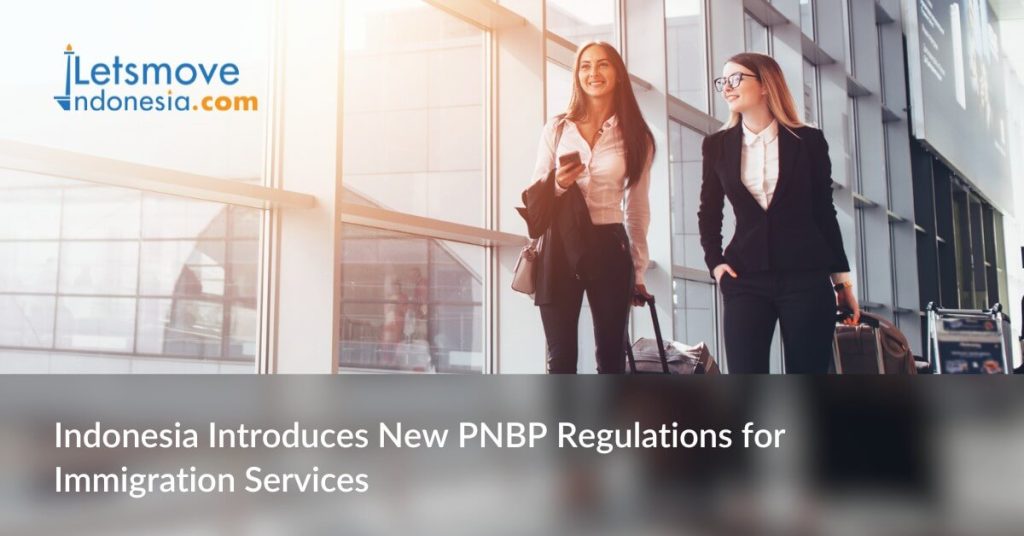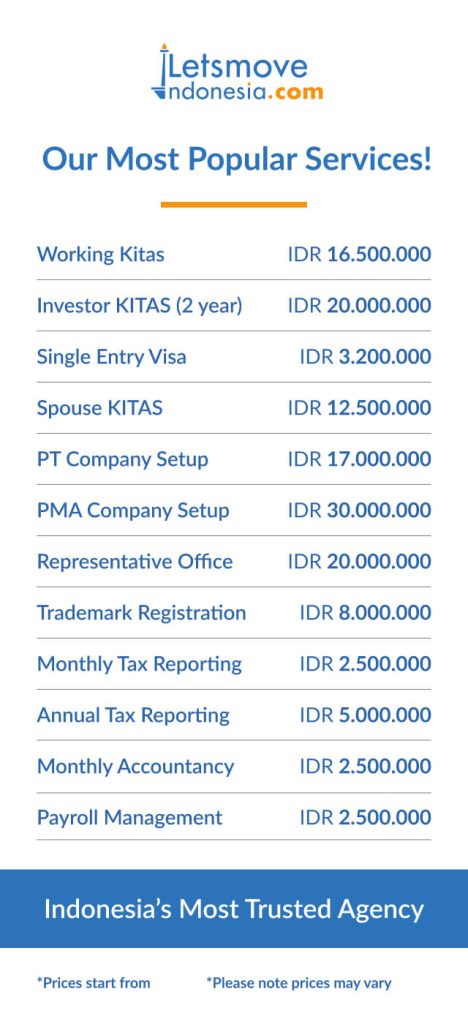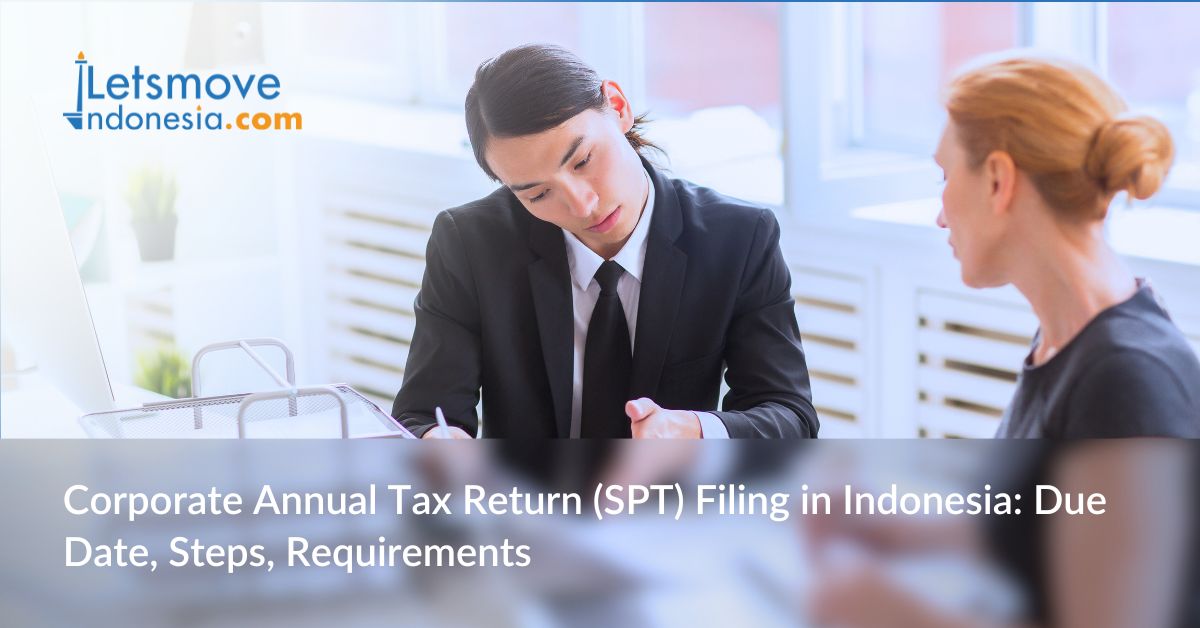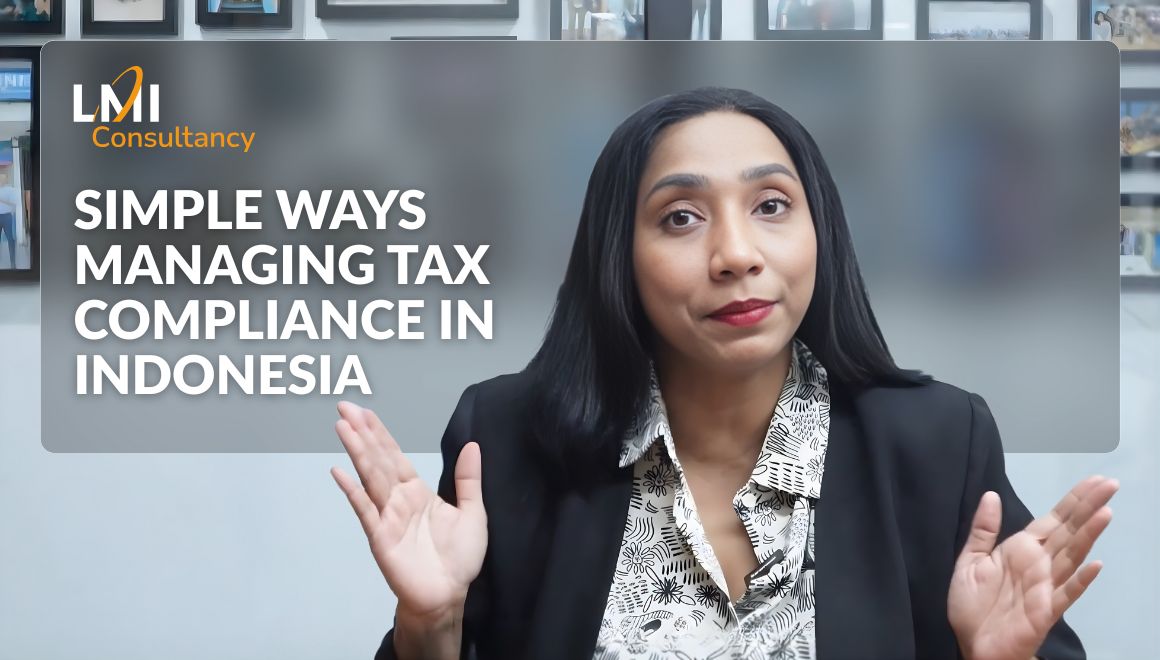Jakarta, 17 December 2024 – Indonesia has rolled out updated regulations on Non-Tax State Revenue (PNBP) for immigration services, including visa applications, stay permits, and passport issuance. These changes, outlined in Government Regulation No. 45 of 2024, officially take effect today, replacing the previous regulation, Government Regulation No. 28 of 2019.
The revised PNBP rates aim to simplify the immigration process for foreign nationals, making it more transparent and accessible for expatriates living or planning to move to Indonesia.
What is PNBP?
PNBP (Penerimaan Negara Bukan Pajak), or Non-Tax State Revenue, is a key source of government funding that comes from administrative fees, public services, and government-owned resources, rather than taxes. Immigration services such as visa issuance, stay permits, and passport applications make up a significant part of PNBP.
The revenue collected through PNBP supports public services, infrastructure, and other national development programs. Periodic updates to these rates are designed to align with government priorities while enhancing efficiency and fairness in service delivery.
What Has Changed?
The new regulation provides clearer and more defined rates for immigration services, helping applicants better understand the costs and plan their applications accordingly.
As detailed in a circular from the Director General of Immigration, the goals of the updated regulation include:
- Improving legal clarity in immigration services.
- Ensuring transparency, fairness, and efficiency.
- Strengthening accountability across all immigration offices.
Key Updates in the New Tariffs
The updated PNBP regulation introduces revised fees for several immigration-related services, including:
- Temporary and permanent stay permits.
- Extensions of residency permits.
- Passport applications and renewals.
While specific tariff details are still being disseminated, the government has emphasized that these changes will streamline the application process, making it easier for expatriates and foreign investors to manage their residency in Indonesia.
What This Means for Expats
For expatriates, the updated PNBP rates signal a more predictable and user-friendly process for managing immigration needs. These changes are expected to improve the overall experience for first-time applicants and those renewing their permits, ensuring smoother interactions with immigration offices.
The new regulation also reflects Indonesia’s commitment to creating a welcoming environment for foreign nationals and fostering economic growth through increased foreign investment, tourism, and professional opportunities.
Supporting Economic Growth
By simplifying and enhancing the immigration process, the government hopes to attract more expatriates, investors, and businesses to Indonesia. These changes are part of a broader effort to boost economic growth by encouraging foreign direct investment and promoting Indonesia as a destination for work, travel, and long-term residency.
Stay Informed with Lets Move Indonesia
Navigating new immigration regulations can feel daunting, but Lets Move Indonesia is here to help. As a trusted visa consultation and assistance provider, we specialise in making immigration processes seamless for individuals and businesses alike.
With years of experience in visa applications, residency permits, and legal support, our team offers expert guidance tailored to your specific needs. Whether you’re applying for a new visa, extending a permit, or exploring residency options, we’re here to simplify the process every step of the way.
Stay up to date with the latest immigration regulations in Indonesia, and let us help you navigate these changes with confidence. For personalized consultations or more information about the new PNBP regulation, contact Lets Move Indonesia today.











